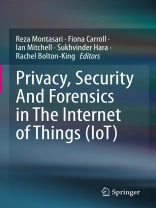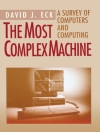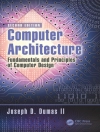This book provides the most recent security, privacy, technical and legal challenges in the Io T environments. This book offers a wide range of theoretical and technical solutions to address these challenges. Topics covered in this book include; Io T, privacy, ethics and security, the use of machine learning algorithms in classifying malicious websites, investigation of cases involving cryptocurrency, the challenges police and law enforcement face in policing cyberspace, the use of the Io T in modern terrorism and violent extremism, the challenges of the Io T in view of industrial control systems, and the impact of social media platforms on radicalisation to terrorism and violent extremism.
This book also focuses on the ethical design of the Io T and the large volumes of data being collected and processed in an attempt to understand individuals’ perceptions of data and trust. A particular emphasis is placed on data ownership and perceived rights online. It examines cyber security challenges associated with the Io T, by making use of Industrial Control Systems, using an example with practical real-time considerations. Furthermore, this book compares and analyses different machine learning techniques, i.e., Gaussian Process Classification, Decision Tree Classification, and Support Vector Classification, based on their ability to learn and detect the attributes of malicious web applications. The data is subjected to multiple steps of pre-processing including; data formatting, missing value replacement, scaling and principal component analysis.
This book has a multidisciplinary approach. Researchers working within security, privacy, technical and legal challenges in the Io T environments and advanced-level students majoring in computer science will find this book useful as a reference. Professionals working within this related field will also want to purchase this book.
Inhoudsopgave
Introduction – Critical Analysis of the Challenges Police and Law Enforcement Face in Policing Cyberspace.- Ethics and the Internet of Everything: A Glimpse into People’s Perceptions Of Io T Privacy and Security.- Privacy and Security Challenges and Opportunities for Io T Technologies during and beyond COVID-19.- The Challenges of the Internet of Things Considering Industrial Control Systems.- An Introduction to Cryptocurrency Investigations.- The Application of Machine Learning Algorithms in Classification of Malicious Websites.- The Use of the Internet and the Internet of Things in Modern Terrorism and Violent Extremism.- The Impact of the Internet and Social Media Platforms on Radicalisation to Terrorism and Violent Extremism.- The Internet, Social Media and the Internet of Things in Radicalisation to Terrorism and Violent Extremism.- The Internet of Things and Terrorism: A Cause for Concern.
Over de auteur
Reza Montasari
Dr. Reza Montasari is a Senior Lecturer in Cyber Threats at Swansea University in the Department of Criminology at Swansea University. Dr. Montasari is also a member of Swansea University’s Cyber Threats Research Centre, that focuses on addressing a range of online threats, from terrorism, extremism and cybercrime to child sexual exploitation and grooming online. Reza is a Fellow of Higher Education Academy (FHEA), a Chartered Engineer (CEng), a Member of the Institution of Engineering and Technology (IET), and a Member of the Chartered Society of Forensic Sciences (MCSFS). Reza is a Member of Strategic Independent Advisory Group at South Wales Police and has previously worked with a number of High-Tech Crime Units of police forces within the United Kingdom. He serves as an Editorial Board Member, a Programme Steering Committee Member and a Reviewer for a number of leading international journals and conferences in the fields of Digital Forensics and Cyber Security.
His main research interests lie in the areas of Digital Forensics, Artificial Intelligence, and Cyber Security but also include Cyber Law and Cyber Criminology. He has authored over 40 journal articles, books, conference papers, book chapters and media articles in his specialist areas. Reza frequently presents at various conferences including the annual International Conference on Global Security, Safety & Sustainability (ICGS3). He has also given a number of invited talks including his recent presentations at the International Conference on Cyberlaw, Cybercrime & Cybersecurity (India, virtual conference) and at the College of Policing and The Investigator Spring National Digital Media Investigator’s (DMI) Conference (Oxford, UK., 2019).
Fiona Carroll
Dr. Fiona Carroll is a Reader in Human Computer Interaction with the School of Technologies, Cardiff Met University, Wales. Her research over the past seventeen years has focused on the fast -changing relations between humans and digital technologies. It is multi-disciplinary and shows a substantial contribution to scholarship in the fields of Human Computer Interaction. Her current interests include the aesthetic of cyberspace and how we might design for the immediate informed ‘sense’ that people need to prevent and/ or cope with harm online. As an accomplished academic, she has numerous peer reviewed publications and has partaken in cutting-edge research projects both at national and international levels.
Ian Mitchell
Ian Mitchell is Associate Professor at Middlesex University in the Dept of Computer Science. Ian is programme leader for BSc Cyber Security and Digital Forensics and teaches on a
variety of topics related to this degree. Ian’s research includes: Artificial Intelligence; Cyber Security; Digital Forensics; and, Blockchain-related technologies. The latter of these have seen developments on securing information systems in healthcare and education, particularly in permissioned blockchain environments that uses sustainable consensus algorithms. Ian has recently been involved with the development of digital forensic frameworks for smart environments; and involved with an internationally funded programme (Human Brain Project) that develops learning agents in AI.
Sukhvinder Hara
Sukhvinder Hara is a Senior Lecturer in Digital Forensics in the Department of Computer Science in the School of Science and Technology at Middlesex University. She has over twenty-five years’ experience in the technology sector of which over fifteen years has been in investigations and financial crime prevention (both in practice and in teaching this specialism). Sukhvinder is a member of the Aspects of Law and Ethics Relating to Technology (ALERT) Research Group and is a member of the Computer Science Ethics Committee.
She is an acknowledged expert in the field of Digital Forensics and Cryptocurrencies with particular knowledge ofthe financial crime prevention strategies in organisations, training, digital investigations of new technologies. Current professional and knowledge transfer activities have included:
• ANEC – Committee member for Digital Society for Blockchain Standardisation -2017 Member of CEN/BT Fintech working group reviewing consumer interest ISO/TC:
▪ ISO/TC Financial Services
▪ ISO/TC Blockchain and Electronic Distributed Ledger Technologies
Rachel Bolton-King
Dr Rachel Bolton-King is an Associate Professor of Forensic Science at Staffordshire University, specialising in firearms and ballistics. She is a Technical Advisor for the Association of Firearm and Tool Mark Examiners and Professional Member of the Chartered Society of Forensic Sciences. Rachel works on multi-disciplinary, international projects, particularly focusing on improving timeliness and efficiency within the criminal justice system through the use of technology. For example, in 2019, Rachel wasawarded a Winston Churchill Fellowship researching the people, processes and technologies used to advance firearm investigations across South Africa, USA, UK and France. Over the last 10 years she has published numerous research articles and book chapters, speaking at international conferences and industry events, and was recently appointed as Editor-in-Chief of the Science and Justice journal. Dr Bolton-King actively supports and leads on academia-industry partnerships, for example through the Staffordshire Forensic Partnership and the development of Research4Justice (www.research4justice.ac.uk), a centralised platform sharing open access research relevant to international justice systems.












